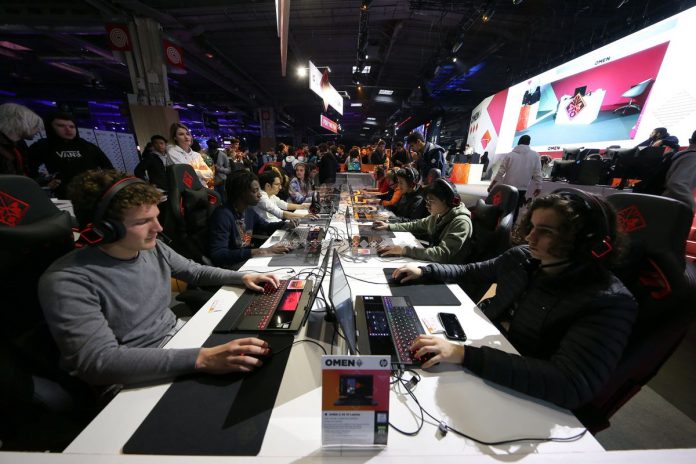This article has been written by CA Salil Arora pursuing an Executive Certificate Course in US Accounting and Bookkeeping from LawSikho.
This article has been edited and published by Shashwat Kaushik.
Table of Contents
Introduction
The rise in internet infrastructure and the availability of smartphones in every budget bracket have led to an ancillary surge in online gaming and esports. The government of India officially recognises e-sports in the same manner as any other multi-sport event, unlike in the case of online gaming or real money gaming.
Esports has been popular after its inclusion in the Asian Games 2022 and also the Bermingham Commonwealth Games of 2022, where the Indian team won bronze in the DOTA 2 category. Esports are expected to generate USD 79 million in 2023 and they are also expected to grow at a CAGR of 9.06% between 2023 and 2028, with a projected USD 166.3 million in 2028.
E-sports vs. online gaming
E-sports, short for electronic sports, refers to competitive video gaming, while online gaming is one that can be played using the internet and telecommunication.
The two sound the same, but the difference between the two is skill, expertise, and level of playing. While e-sports involve professional players or teams involved in competitive video games playing in tournaments or leagues, online gaming is a casual game played at an informal level and includes real money gaming.
In esports, there is prize money involved as in any other tournament, unlike in online gaming, where a player deposits the cash or kind beforehand in the expectation of earning.
The games involved in esports are Counter Strike, Fortnite, and Valorant. The online gaming platform includes Dream 11, MPL, etc.
Source of revenue
Esports is a team-based tournament or league where the organiser gets revenue in the form of:
- Sponsorship and advertising: It consists of the revenue generated by organisers and teams through sponsorship deals. The deal includes product placement, sponsoring esports teams, etc.
- Merchandise and ticketing: It is a source of revenue from the sale of t-shirts etc., of the participating teams in a tournament. The entry fee for an online event and the sale of tickets for an offline event generate revenue.
- Streaming: The revenue is generated by the live broadcasting or streaming of gaming events.
- Media rights: The media rights are sold to media agencies for coverage of gaming events.
- Publisher fees: The fees paid by game organisers to the game publishers for the use of intellectual rights related to the game to organise a tournament or game.
- E-sports betting: It is the act of placing a bet on the outcome of a gaming event or performance of a particular team or player.
- In-game purchases: In some esports games, organisers and developers can generate revenue through in-game purchases. These microtransactions allow players to buy virtual items, skins, or other cosmetic enhancements that do not affect gameplay but provide a sense of personalisation and exclusivity. A portion of the revenue from these purchases can be shared with the tournament organisers or game developers.
In online gaming, the primary source of revenue is subscription purchases, In-app purchases, microtransactions, etc. The platform operator deducts a part of the revenue towards its expenses, and the balance is contributed to the prize pool.
Taxation of online gaming : Income Tax
As per the Finance Bill of 2023, a new Section 115 BBJ has been added. It provides for taxation on the total income of an assessee, with effect from April 1, 2024, where the total income includes winnings from online gaming.
According to the Finance Bill, online gaming winnings will be taxed as part of the assessee’s total income, which includes income from all sources, such as salary, business profits, capital gains, and other miscellaneous sources. This means that individuals who earn winnings from online gaming will need to declare and pay tax on these winnings along with their other sources of income.
It’s important to note that this provision applies to all forms of online gaming, including games of skill and games of chance. Whether it’s playing poker, betting on sports, or participating in online lotteries, any winnings derived from these activities will be subject to taxation under Section 115 BBJ.
The Finance Bill also provides some clarity on the taxability of winnings from online gaming tournaments. In such cases, the winnings will be considered income from business or profession and taxed accordingly. This means that individuals who participate in online gaming tournaments on a regular basis and earn substantial winnings may need to maintain proper books of accounts and follow the rules and regulations applicable to business or professional income.
The introduction of Section 115 BBJ is a significant development in the taxation of online gaming in India. By bringing online gaming winnings under the tax net, the government aims to ensure that individuals who engage in these activities are subject to the same tax obligations as other sources of income. It also seeks to address the growing popularity of online gaming and the potential revenue that can be generated from taxing these winnings.
Introduction of TDS provisions
Finance Bill 2023 introduced Section 194 BA, applicable w.e.f. July 1, 2023, for deducting TDS from the net winnings during the financial year:
- The section provides for deducting TDS at the prescribed rates on the net winnings in the user account as of the last date of the financial year.
- In case of withdrawal during the financial year, the user shall deduct TDS on the net winnings comprising such withdrawal in addition to the net winnings in the user account at the end of the financial year.
- In the event that the winnings are partly in cash and partly in kind and the cash is not sufficient to cover the tax payable on the withdrawal amount, the deductor shall make sure that the tax has been fully paid before releasing the net winnings amount.
Key points about Section 194 BA
Applicability
Section 194 BA applies to payments made to any person (including individuals, companies, or other entities) for net winnings arising from:
- Horse races.
- Card games (including online games).
- Other games of any sort (excluding lotteries, betting, and gambling covered under Section 115BB).
Threshold limit
TDS is required to be deducted only if the aggregate net winnings exceed a specific threshold limit during the financial year. The threshold limits are as follows:
- Horse races: Rs. 10,000
- Card games and other games: Rs. 15,000
Rate of TDS
The rate of TDS under Section 194 BA is 30% of the net winnings.
Responsible party for TDS deduction
The person making the payment of net winnings is responsible for deducting TDS at the specified rate. This includes organisers, clubs, or gaming houses where the winnings are generated.
Reporting and deposit of TDS
The person deducting TDS must deposit it with the government within the prescribed time frame, as specified by the Central Board of Direct Taxes (CBDT). They must also issue a TDS certificate (Form 16D) to the recipient, reflecting the amount of TDS deducted.
Non-compliance consequences
Failure to deduct or deposit TDS as required under Section 194 BA may result in penalties and interest as per the provisions of the Income Tax Act.
Implications for taxpayers
Recipients of net winnings should ensure that TDS is deducted at the correct rate and that they receive the TDS certificate. They can claim credit for the TDS deducted while filing their income tax returns.
Overall, Section 194 BA in the Finance Bill 2023 aims to streamline the taxation of net winnings from specified sources and bring them under the ambit of the regular TDS provisions. This amendment is expected to enhance tax compliance and broaden the tax base in the gaming and entertainment sectors.
Notification dated May 22, 2023
The Ministry of Finance, Department of Revenue, issued an Income Tax notification dated May 22, 2023, clarifying the net winnings to be calculated for the purposes of Section 115 BBJ and Section 194 BA.
The main provisions of notification are:
- Rule 133 is inserted after Rule 132 in the Income Tax Rules of 1962.
- The provisions are applicable as of July 1, 2023.
- It explains the net winnings for the purposes of Sections 115 BBJ and 194 BA.
- For Section 115 BBJ, taxable net winnings earned during the previous year are calculated as follows:
Taxation of online gaming : goods and service tax
In the 50th GST Council meeting held in July 2023, the GST of 28% is proposed to be levied. The GST is to be levied at the full value of the consideration received by online gaming, including entry fees. The proposal is for online gaming, casinos, and horse-trading.
Unlike current scenarios, there is no distinction between the game of chance and the game of skill. A game of skill involves the expertise, experience, and practice of the player, whereas a game of chance involves sheer luck. The game of chance is the same as gambling or betting. The distinction between a game of chance and a game of skill is important, as a game of skill attracts a lower GST of 18% as compared to 28% in the case of a game involving skills.
Thus, the present scenario makes a distinction between e-sports and other online games.
The proposed GST regime attempts to eliminate the difference between the use of skill and the attempt at betting. It proposes a flat 28 % GST, not on the revenue charged by online platforms or e-sports organisers but on the total stake involved.
In the case of casinos, a GST of 28% will be charged for the total number of chips purchased at the time of entry. Further, GST will not be charged at the time of betting in multiple rounds, including betting made with winnings from previous rounds.
Conclusion
The rise of high-speed internet availability and the availability of smartphones in the hands of all segments of the population have made the prospects of online gaming and esports bright in India.
The projection of the rise of the esports industry in India to USD 166.3 million by 2028 showcases its potential. Taxation of net winnings in online gaming at 30% and levies of GST at 28 % on the stake value also show the potential contribution to the country’s revenue reserves. The GST levy of 28%, irrespective of the game of skill or the game of chance, has been a point of issue among the stakeholders. It is going to make participation costly. Also, it will not only hit the growing industry but will also result in a reduction in stake money, making participation less attractive.
The Indian online gaming or e-sports industry is facing competition from USA and China based companies. The government should take steps to raise the business beyond the business in these countries and make it one more flourishing sector of the Indian economy.
References
- https://tax2win.in/guide/tax-on-gaming-in-india
- https://www2.deloitte.com/content/dam/Deloitte/in/Documents/tax/in-tax-GST-on-online-gaming-06.07-noexp.pdf
- https://cleartax.in/s/gst-on-online-gaming
- https://government.economictimes.indiatimes.com/blog/why-are-online-gamers-taxed-at-the-highest-bracket-of-30-in-india/98495571
- https://economictimes.indiatimes.com/wealth/tax/tds-on-online-games-winnings-how-companies-will-deduct-tax-as-per-cbdt-guidelines/articleshow/100500282.cms?from=mdr
- https://www.taxmann.com/budget/budget-story/408/online-gamingfantasy-sports-%E2%80%93-a-game-of-chance-or-game-of-skill
- https://indianexpress.com/article/explained/explained-economics/28-per-cent-tax-online-gaming-gst-council-8830353/
- https://timesofindia.indiatimes.com/business/budget/budget-2023-how-your-winnings-from-online-games-will-now-get-taxed-from-april-1/articleshow/99149405.cms?from=mdr
 Serato DJ Crack 2025Serato DJ PRO Crack
Serato DJ Crack 2025Serato DJ PRO Crack










 Allow notifications
Allow notifications


